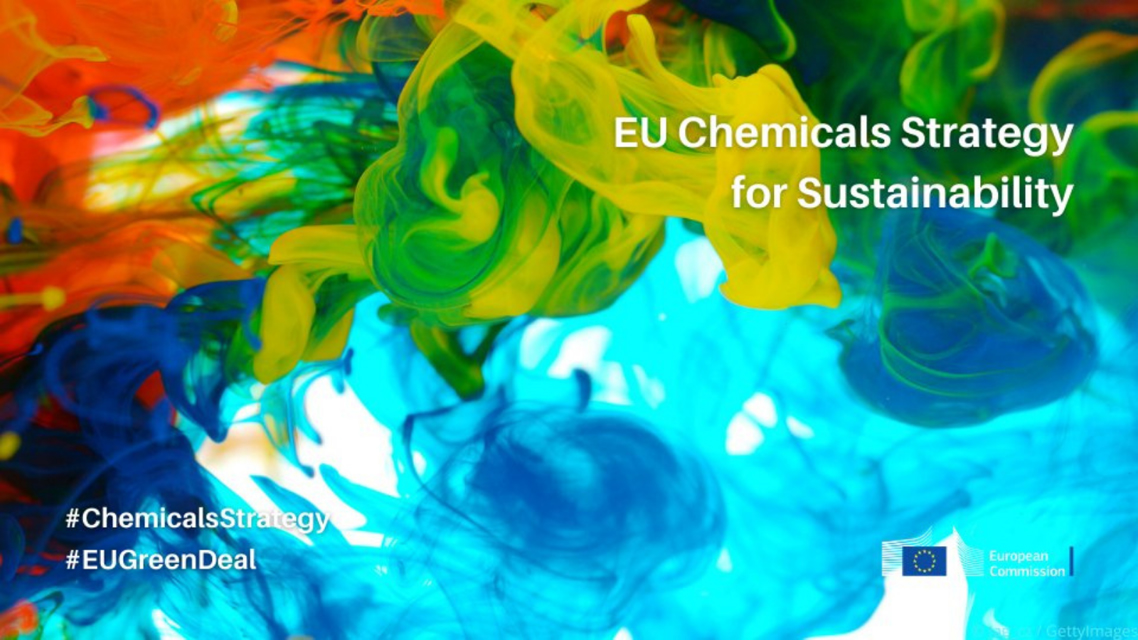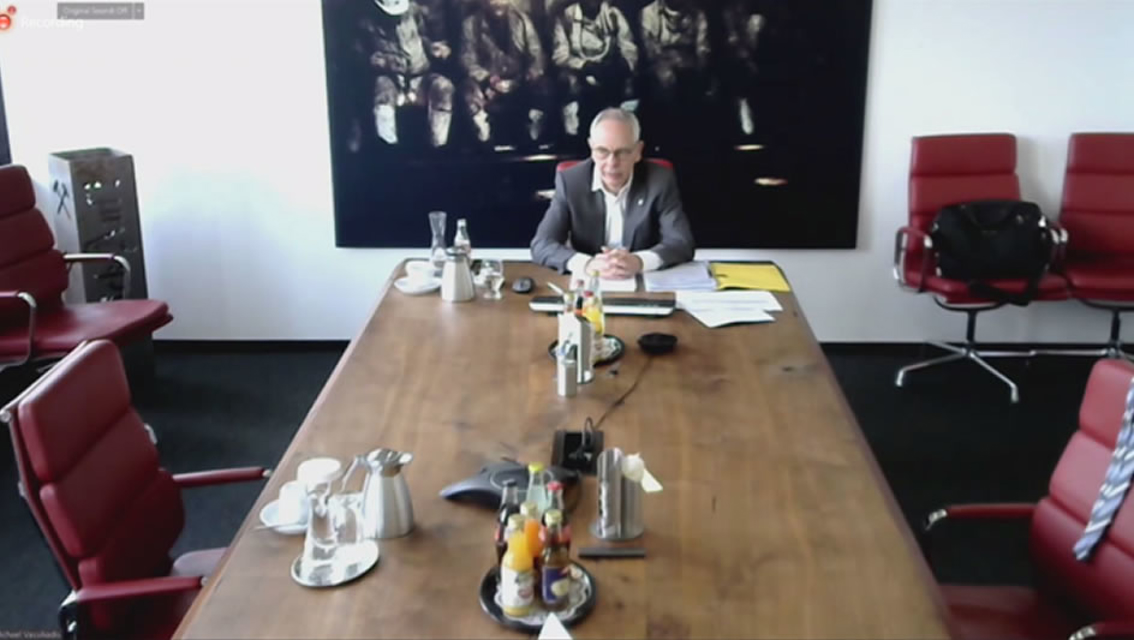For the transition to the new chemicals paradigm ... societal acceptance is key.
On 5 May, Commissioners Sinkevičius and Breton hosted the first meeting of the High Level Roundtable on the implementation of the Chemicals Strategy for Sustainability. Representatives of industry, NGOs and scientific institutes held an initial discussion about the environmental, social and economic dimension for the industrial transition to safe and sustainable chemicals. IndustriAll Europe, represented by its President Michael Vassiliadis, is the only trade union member. Throughout the coming years, the Roundtable will discuss the planned actions and implementation of the strategy, strategic topics such as the concept of “safe and sustainable by design”, competitiveness and innovation. Its role is to advise the Commission and monitor progress.
Michael Vassiliadis, President of industriAll Europe: “For the transition to the new chemicals paradigm, just as for the green transition in general, societal acceptance is key. Preserving and creating good jobs is a crucial element.”
IndustriAll Europe will ensure that the workers’ voice is heard in the process, that quality employment, education and training and regional specificities get the necessary attention.
The European Chemicals Strategy for Sustainability, published in autumn 2020, describes the European Commission’s vision for the production and management of chemicals and the role of the chemical industry in the future. At the heart of the strategy is the ambition to respond more rapidly and effectively to the challenges posed by hazardous chemicals, in essence to speed up the substitution of most harmful substances.
IndustriAll Europe has been vocal in demanding more attention for the employment dimension: Innovation is mainly achieved by innovative people, in companies’ own research departments, laboratories, on the production lines. A clearer focus must be given to retaining quality education and jobs in the industry and to developing adequate content in science, technology, engineering, mathematics subjects. Re-skilling and up-skilling the workforce involved in the production and use of chemicals is needed.
For industriAll Europe, it is of the utmost importance that the recovery boosts and strengthens industrial value chains in Europe, maintaining and creating stable and high-quality jobs.
Our key demands to make the strategy a success for Europe are:
- a clear and unambiguous definition and formulation of criteria of “safe and sustainable by design”, “essential substances” and “essential uses” that respects all three dimensions of sustainability: environmental, economic and social
- a risk-benefit assessment of products
- acknowledge and strengthen the key role of the chemical(s) industry as enabler of the green and digital transformations
- acknowledge the potential of the industry as a driver for recovery and job creation
- reshore the production of important chemicals and strengthen European production sites
- simplify substance assessment processes with the ultimate goal of “one substance, one assessment”
- increase control of imports to ensure that they fulfill the same high standards
- an encompassing impact assessment of the potential effects of the strategy’s elements on employment, on the people who research, produce, process, manage, etc.; and solutions for possible negative impacts long-term stability and planning security for the industry
Contact: Andrea Husen-Bradley (press & communication), Maike Niggemann (policy adviser)

